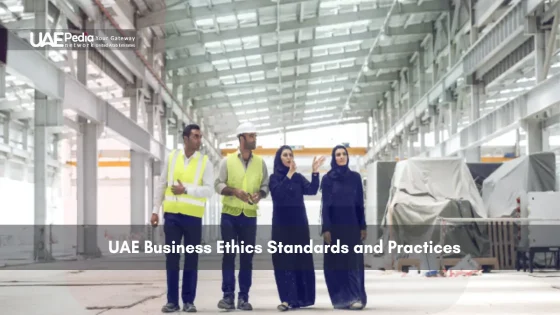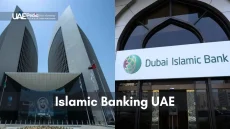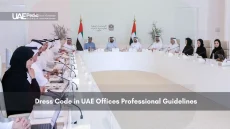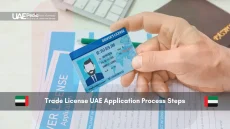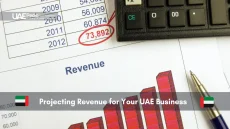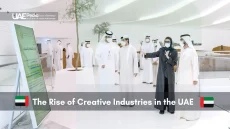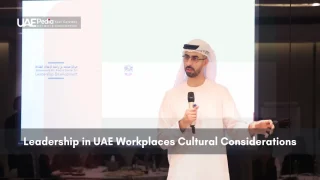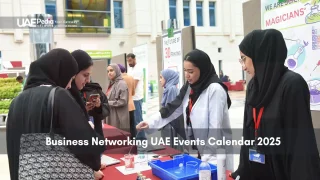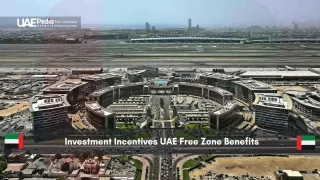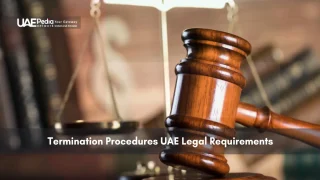What does it take to build trust in one of the world’s most dynamic commercial hubs? The answer lies where ancient Bedouin principles meet glass-and-steel boardrooms. This guide unpacks how cultural DNA shapes decision-making for organizations thriving in the Arabian Gulf.
Islamic values like amanah (trustworthiness) and adl (justice) form the bedrock of local practices. Yet global influences add new layers: Approximately 88.5% of the UAE population are expatriates, contributing to highly multicultural workplaces. This blend creates unique expectations around communication, negotiation, and workplace relationships.
Transparency is integral to business practices, with companies adopting stringent disclosure and governance standards. A 2024 survey indicates that 84% of employees in the UAE and Saudi Arabia take pride in their companies, reflecting strong alignment with organizational values. From family-owned enterprises to tech startups, integrity now drives recruitment and partnerships alike.
The 2024 Workplace Culture Report reveals that 84% of employees in the UAE and Saudi Arabia express pride in their companies, indicating a strong alignment with organizational goals and values. This pride is often linked to factors such as accountability, achievement, and commitment within the workplace. Ref.: “84% of UAE & Saudi employees show pride in their companies, reveals together. together.” [!]
We’ll explore how to:
- Respect hierarchical structures while encouraging modern collaboration
- Align corporate policies with both Sharia principles and international standards
- Navigate gift-giving customs without crossing compliance lines
Consider this your compass for building lasting connections where tradition and progress share the conference table.
Navigating the UAE’s Multicultural Business Landscape
Picture a marketplace where gold traders haggle in Arabic beside tech startups pitching in English. This vibrant duality defines professional life here. At its core lies a simple truth: understanding cultural codes unlocks opportunities faster than any spreadsheet.
Integrating Islamic Traditions with Modern Business Practices
Five daily prayer breaks aren’t quirks—they’re non-negotiable rhythms shaping office schedules. During Ramadan, workdays shorten as fasting colleagues conserve energy. One logistics company redesigned shift patterns using qibla direction apps for prayer room access. “Respecting these traditions builds trust,” explains a Dubai HR manager. “It shows we value people beyond productivity.”
Merging Traditional Hospitality with Corporate Strategy
Modern organizations blend global practices with local wisdom. Banks offer Sharia-compliant financing alongside conventional loans. Multinational teams might start meetings with Arabic coffee rituals before diving into data analytics.
Key adaptation strategies:
- Scheduling flexibility around Friday sermons and Eid holidays
- Using indirect communication styles to maintain harmony
- Incorporating modest dress codes in client-facing roles
With 200+ nationalities working here, cultural fluency becomes your superpower. It’s not about memorizing rules—it’s reading the room like a seasoned desert guide sensing shifting sands.
Core Principles of Ethical Business in the UAE
In a land where tradition meets innovation, ethical roots run deep. Companies thrive by balancing timeless principles with modern accountability measures. The secret sauce? Three non-negotiable pillars that shape every handshake and contract.
Core Values: Honesty, Integrity, and Trust
Walk into any boardroom and you’ll feel it—the unspoken expectation that deals honor more than profit margins. Local organizations embed sidq (truthfulness) into their DNA, from accurate financial reporting to transparent supplier relationships. A Dubai construction CEO puts it simply: “We build towers that don’t topple because we build trust first.”
Government initiatives reinforce these values. The 2021 Commercial Companies Law mandates disclosure requirements, while free zones offer “trusted partner” certifications. It’s why 83% of professionals in a recent survey said ethical practices directly impact their company choices.
Federal Decree-Law No. 32 of 2021 on Commercial Companies enhances corporate transparency by mandating comprehensive disclosure requirements for businesses operating within the UAE. This legal framework aims to bolster investor confidence and ensure ethical business practices. Ref.: “Federal Decree Law No. (32) of 2021 on Commercial Companies. UAE Legislation.” [!]
Role of Corporate Social Responsibility and Community Impact
CSR here isn’t just charity—it’s strategic citizenship. Take Emirates NBD’s digital education programs reaching 100,000 students annually. Or DP World’s green logistics hubs cutting carbon footprints. The federal government sweetens the deal with tax incentives for sustainability projects.
Emirates NBD’s commitment to sustainability and corporate social responsibility is exemplified by its digital education initiatives, which have reached over 100,000 students annually. These programs align with the United Nations Sustainable Development Goals and the Dubai Financial Market’s ESG Reporting Guidelines. Ref.: “Sustainability – Commitment to ESG – Emirates NBD. Emirates NBD.” [!]
Multinationals adapt quickly. IKEA’s solar-powered stores and Nestlé’s water conservation initiatives show global brands aligning with local priorities. As one Abu Dhabi policymaker notes: “When companies grow with the community, everyone wins.”
Respecting Religious Customs in Business Operations
Imagine your calendar syncs with crescent moon sightings and workdays bend around spiritual rhythms. Here, time isn’t just money—it’s a tapestry woven with faith and heritage. Companies thrive by honoring these patterns while keeping productivity humming.
Observing Islamic Rituals and Religious Holidays
During Ramadan, offices transform. During Ramadan, work hours are typically reduced by 2-3 hours to accommodate fasting schedules. One tech firm rescheduled client calls to mornings when energy levels peak. “We maintain output by shifting focus to priority tasks,” shares a Dubai project manager. “It’s about respect, not rigidity.”
In accordance with UAE labor laws, private sector working hours are reduced by two hours daily during Ramadan to accommodate fasting practices. Employers must adjust schedules accordingly to ensure compliance and maintain productivity. Ref.: “Working hours and overtime | The Official Portal of the UAE Government. UAE Government.” [!]
Eid celebrations flip the off-switch entirely. Smart organizations plan deliverables around these breaks—like a logistics company that pre-stocks warehouses before Eid al-Adha. Prayer times? They’re non-negotiable pauses. Many offices have designated musallah rooms with prayer mats and qibla direction markers.
Respecting Local Traditions in Business Interactions
First meetings often start with Arabic coffee and date offerings—declining is like refusing a handshake. Dress codes emphasize modesty; men typically wear suits and ties, while women should cover shoulders, arms, and knees. A European CEO learned this fast when rolling up sleeves during summer negotiations. “The room cooled faster than the deal,” he laughs now.
Pro tips for smooth operations:
- Schedule meetings between 10:00 AM and 11:30 AM or 3:00 PM and 4:30 PM to avoid prayer times and peak heat.
- Avoid firm handshakes with Muslim colleagues of the opposite gender
- Swap alcohol-themed corporate gifts for artisanal dates or saffron
Global giants like Amazon and HSBC adapt beautifully. Their secret? Training programs on Emirati etiquette paired with flexible holiday policies. As one hospitality leader notes: “When we honor traditions, partnerships blossom like desert flowers after rain.”
Understanding Hierarchical Dynamics in UAE Organizations
Step into a corporate tower where titles carry weight like ancient family names. Here, respect for rank isn’t just polite—it’s the grease that keeps deal-making engines humming. Picture a tech startup founder patiently waiting to address the most senior executive first, even in fast-paced environments.
Why Seniority Shapes Every Handshake
In local organizations, decision-making often flows downward. A 2023 Gulf Business report found 74% of companies here maintain strict reporting chains. Take Emirates Airlines—their operational approvals typically require three hierarchical levels. “You don’t bypass layers,” notes a Dubai logistics manager. “It’s like serving Arabic coffee: oldest first, always.”
Greeting protocols mirror this structure. Junior team members often let senior colleagues initiate handshakes. During meetings, the highest-ranking person usually speaks first. One multinational learned this when their eager intern dominated a client pitch. The deal stalled until senior staff re-established protocol.
| Hierarchy Trait | Local Corporations | International Subsidiaries |
|---|---|---|
| Decision Speed | Multi-layer approvals | Flatter structures |
| Communication Style | Formal, rank-aware | Direct, egalitarian |
| Key Influencers | Founding family members | Department heads |
Adaptation strategies thrive in this environment. ADNOC, the Abu Dhabi energy giant, blends traditional hierarchies with agile task forces. Their project teams include “cultural liaisons” who map decision pathways. Expats often use mentorship programs to identify shadow power brokers—those unofficial advisors who sway choices.
Three field-tested tips:
- Study organizational charts before meetings—note honorifics like Sheikh or Dr.
- Let senior partners set meeting tones before contributing
- Use formal titles such as ‘Sheikh’, ‘Dr.’, or ‘Mr./Ms.’ followed by surnames until invited to use first names.
As a Sharjah manufacturing CEO puts it: “Our hierarchies aren’t barriers—they’re compasses. Learn to read them, and you’ll navigate any boardroom sandstorm.”
Upholding Integrity and Transparency in UAE Business
In a region where handshakes cement billion-dollar deals, transparency isn’t optional—it’s oxygen. Companies thrive here by treating integrity as their North Star, guided by both cultural expectations and evolving legal frameworks that reward ethical operations.
Truth as Currency
Local organizations define integrity through clear communication and accountability. Take a Dubai developer sharing full construction timelines with buyers—delays explained, penalties pre-defined. “Our contracts read like family promises,” their CEO notes. “Break them, and you break trust.”
Government policies amplify this mindset. The 2020 Anti-Fraud Law mandates strict financial reporting, while free zones require real-time license updates. One tech startup learned this when delayed paperwork froze their expansion—now they triple-check filings.
When Shadows Threaten Deals
Consider the logistics firm that discovered a partner overbilling by 12%. Instead of silent termination, they presented forensic audits and co-created corrective plans. Result? A stronger partnership and 23% cost savings within six months.
Three ways companies safeguard standards:
- Conduct third-party audits before major partnerships
- Train employees on whistleblower protections
- Publish sustainability reports matching global benchmarks
“Ethical gaps aren’t failures—they’re alarms,” says a Sharjah manufacturing leader. “Fix them fast, and your reputation becomes fireproof.”
Smart organizations bake checks into daily workflows. Weekly compliance briefings. Supplier scorecards. Even AI tools flagging irregular payments. Because here, clean hands open more doors than golden Rolodexes ever could.
Effective Communication and Etiquette in the UAE Business Context
Imagine every handshake as the first note in a symphony of collaboration—get the rhythm wrong, and the entire melody falters. Here, communication isn’t just about words; it’s a dance of respect, timing, and cultural awareness that opens doors faster than any elevator pitch.
Formal Greetings and Proper Address
Start with “As-salaam Alaikum” (Peace be upon you)—it’s more than hello, it’s a sign of reverence. Titles matter deeply: use Sheikh for royal family members, Dr. for academics, or Mr./Ms. followed by surnames. One logistics firm lost a potential deal by addressing a CEO as “Ahmed” instead of “Sheikh Ahmed” in initial emails. Lesson learned: when in doubt, over-formalize.
Building Rapport Through Small Talk and Social Cues
Skip weather chatter—ask about family or local sports teams instead. A Dubai tech founder shares: “I spent 20 minutes discussing falconry with a client before mentioning contracts. That conversation secured a 3-year partnership.” Meals are bonding rituals: decline seconds of Arabic coffee at your peril—it’s like rejecting a friendship bracelet.
Three field-tested strategies:
- Pause 2 seconds after someone speaks—interrupting signals impatience
- Use open palm gestures while speaking, avoiding pointed fingers
- Share stories about cultural landmarks (Burj Khalifa, Louvre Abu Dhabi) to show genuine interest
Hierarchy whispers through every interaction. Junior team members often let seniors initiate topic changes. At a recent fintech conference, a startup CEO waited 15 minutes before respectfully contributing to an elders-led discussion. Result? An invitation to present at their corporate retreat.
“Here, trust grows in the spaces between words,” notes an Emirati HR director. “Listen more than you speak, and you’ll hear opportunities knocking.”
Professional Attire and Presentation Standards in the UAE
What’s the first thing Emirati executives notice before you even speak? Your shoes. This unspoken corporate chessboard reveals how tradition and modernity share the same rack. Here’s how to navigate sartorial expectations without losing your professional edge.
Silhouettes That Speak Volumes
Local professionals often wear kandura (white robe) or abaya (flowing cloak)—garments blending cultural identity with crisp formality. Multinational teams might pair tailored suits with subtle nods to modesty: higher necklines, muted tones. A Dubai banker shares: “My Italian blazer gets compliments when sleeves cover wrists during handshakes.”
Industry norms vary sharply:
| Sector | Expected Attire | Pro Tip |
|---|---|---|
| Banking/Law | Full suits, closed-toe shoes | Carry a light blazer for impromptu meetings |
| Tech Startups | Smart casual with collared shirts | Swap jeans for chinos during client pitches |
| Hospitality | Branded uniforms + cultural accessories | Add an embroidered lapel pin for local flair |
Expatriates find success through adaptation. One marketing director swapped sleeveless dresses for linen shirts—sales meetings soared 40%. “Dressing respectfully opened doors I didn’t know existed,” she notes. Even business-casual Fridays have rules: no shorts, logos, or sheer fabrics.
“Your attire is your silent business card,” says an Emirates NBD HR leader. “We trust those who mirror our values through presentation.”
Three quick-win strategies:
- Observe senior colleagues’ style choices as cultural compasses
- Invest in breathable fabrics for 45°C commutes
- Keep a neutral scarf in your bag for mosque visits
From boardrooms to co-working spaces, visual harmony bridges worlds. Because here, the right cufflinks can spark conversations no spreadsheet ever could.
“read also: Employee Benefits UAE Standard and Additional Options
Planning Meetings and Navigating Business Hours in the UAE
Ever tried syncing calendars across time zones while respecting ancient lunar cycles? Welcome to planning in a land where digital efficiency dances with timeless traditions. Here’s how to master the clock without missing a beat.
When Office Hours Meet Prayer Times
Most organizations operate Sunday through Thursday—Friday’s sacred for sermons and family. Mornings typically start at 8 AM, with midday breaks avoiding peak heat and Dhuhr prayers. One logistics company color-codes schedules: green for optimal meeting slots, red during prayer windows. “It’s not restrictive,” says their Dubai manager. “It’s about flowing with the rhythm of the country.”
Ramadan reshapes entire operational cadences. Workdays shorten by 2-3 hours, while delivery companies like Aramex shift to night shifts for faster service. Tech startups often hold “sprint sessions” early mornings when fasting teams have peak energy.
| Period | Standard Hours | Ramadan Adjustments |
|---|---|---|
| Government Offices | 7:30 AM – 3:30 PM | 9 AM – 2 PM |
| Private Sector | 8 AM – 6 PM | 10 AM – 4 PM |
| Retail | 10 AM – 10 PM | Noon – Midnight |
Three proven strategies for smoother planning:
- Book meetings between 10-11:30 AM or 3-4:30 PM—avoids lunch and prayer overlaps
- Confirm dates twice: Gregorian and Hijri calendars sometimes clash
- Send agenda summaries post-meeting—helps colleagues reviewing after breaks
“Punctuality shows respect,” notes an Abu Dhabi HR director. “Arrive five minutes early, and you’ve already built goodwill.”
Global companies like Microsoft and local firms alike thrive through flexibility. A fintech startup rescheduled product launches around Eid holidays—resulting in 31% higher engagement. Because here, timing isn’t just logistics. It’s poetry.
Cultivating Relationships and Networking in the UAE Business Environment
Ever wondered why some partnerships here feel more like family bonds than corporate contracts? The answer lies in coffee-scented meeting rooms and sunset yacht gatherings—spaces where professional ties transform into lasting alliances.
“Read also: Motivation in UAE Workplaces Effective Strategies“
Leveraging Social Networks and Business Introductions
Trusted referrals unlock doors faster than cold emails ever could. Attend Dubai Chamber of Commerce mixers or Abu Dhabi Global Market forums—these events serve as modern-day majlis where introductions carry weight. A fintech founder landed her first government contract after being introduced by a mutual acquaintance at a pearl farming exhibition. “Shared connections act like social currency,” she notes.
Three proven approaches:
- Seek warm introductions through industry associations
- Join sector-specific councils like the Technology Innovation Institute’s network
- Volunteer for CSR initiatives to meet purpose-driven leaders
“read also: Business Marketing Consultants UAE Selection Criteria
Strategies for Long-Term Rapport and Trust
Relationships here thrive on consistent nurturing. Schedule quarterly ghahwa (coffee) catch-ups beyond formal meetings. One logistics company credits annual desert retreats with maintaining 92% client retention. Remember birthdays and professional milestones—it shows you value the person, not just the partnership.
“We measure success in decades, not quarters,” shares a Sharjah manufacturing CEO. “The real deals happen after third helpings of luqaimat sweets.”
Key practices for enduring connections:
- Rotate meeting locations between offices and cultural venues
- Introduce team members across departments early
- Share relevant industry insights between projects
Best Practices for Ethical Business in the UAE
In a realm where centuries-old traditions meet cutting-edge innovation, success hinges on more than just strategy. Thriving companies here weave cultural wisdom into every policy—whether adapting workflows for prayer times or aligning CSR initiatives with community needs. The organizations that last master a delicate dance: honoring majlis customs while deploying AI-driven compliance tools.
Three lessons echo across industries. First, transparency isn’t optional—it’s the currency of trust. Second, employees and clients alike reward businesses that respect local rhythms, from Eid closures to modest dress codes. Third, government frameworks and ethical practices grow stronger together, like date palms rooted in shared soil.
Read More:
Your playbook? Start by auditing policies through dual lenses: global efficiency and regional values. Join councils like the Dubai Chamber of Commerce to exchange insights. And remember—every handshake here carries the weight of heritage. Approach partnerships as long-term relationships, not transactions.
Ready to deepen your impact? Explore industry-specific workshops at Abu Dhabi Sustainability Week or volunteer with education-focused CSR programs. Because in this crossroads of culture and commerce, integrity isn’t just good practice—it’s the spark that lights tomorrow’s breakthroughs.
Respect for prayer times, modest conduct, and charitable initiatives like Ramadan donations often reflect Islamic principles. Many firms align policies with values such as honesty (sidq) and fairness (adl), while balancing global standards.
Trust forms the bedrock of partnerships here. Sharing coffee in a majlis, discussing family, or attending cultural events fosters long-term connections—rushing negotiations can signal disrespect for this social-first ethos.
Revealing clothing or overly casual wear (think shorts or tank tops) risks offense. Opt for tailored suits or abayas in neutral tones—when in doubt, mirror your counterpart’s formality level.
Many adjust work hours, especially government entities. Meetings rarely book 11 AM–1 PM Fridays. Smart planners confirm agendas in advance and avoid critical deadlines near Eid or Ramadan closures.
Absolutely! From Emirates’ eco-friendly aviation projects to DP World’s green ports, CSR initiatives around renewable energy and waste reduction now drive both reputation and regulatory compliance.
Light jokes work once rapport exists, but avoid sarcasm or topics like politics/religion. Compliment hospitality or cultural landmarks instead—it shows appreciation without overstepping.
Clearly outlining deliverables, payment terms, and dispute clauses in Arabic/English builds trust. Avoid vague language—written agreements often carry more weight than verbal promises here.
